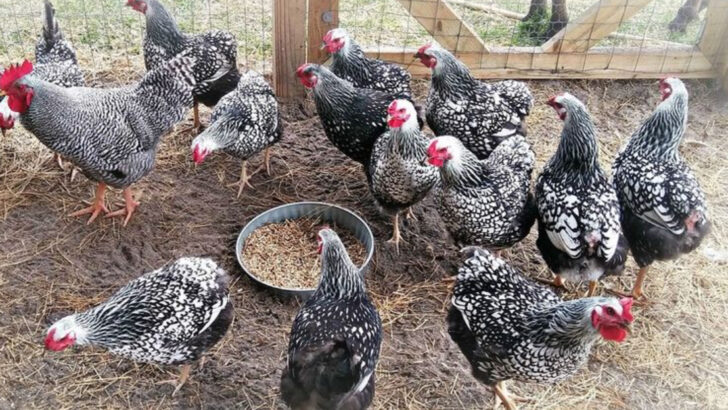Some birds belong on a throne. Others? Straight-up drama queens with feathers.
When you’re starting—or expanding—a backyard flock, it’s easy to get swept up in all the fluff and charm.
Tiny eggs! Fluffy butts! Pinterest-worthy chicken coops!
But not every farm bird is worth your time, feed, or sanity.
Some birds lay like champs, strut with grace, and bring calm to the yard.
Others fight, scream, destroy your garden, or quit laying eggs the second a cloud crosses the sky.
So which ones are the keepers?
And which ones should you leave at the feed store, no matter how cute they look in photos?
Let’s dig into the birds that’ll steal your heart—and the ones that’ll trample it with muddy claws.
Rhode Island Red
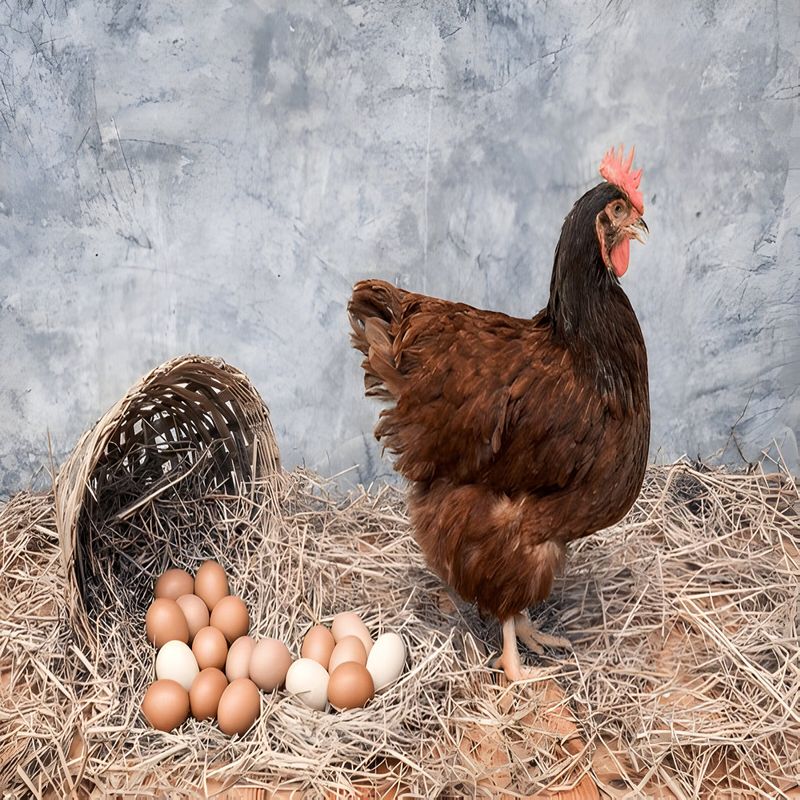
Known for their resilience and prolific egg-laying capabilities, Rhode Island Reds are a staple on many farms. Their robust nature makes them well-suited to various climates, and their friendly demeanor adds charm to the farmyard.
These birds are not only easy to care for but also provide a steady supply of brown eggs. A favorite among poultry enthusiasts, they are often celebrated for their hardiness and adaptability.
Historically, the breed was developed in the late 19th century in Rhode Island and Massachusetts, becoming a symbol of American poultry success. Their versatility is hard to beat.
Leghorn
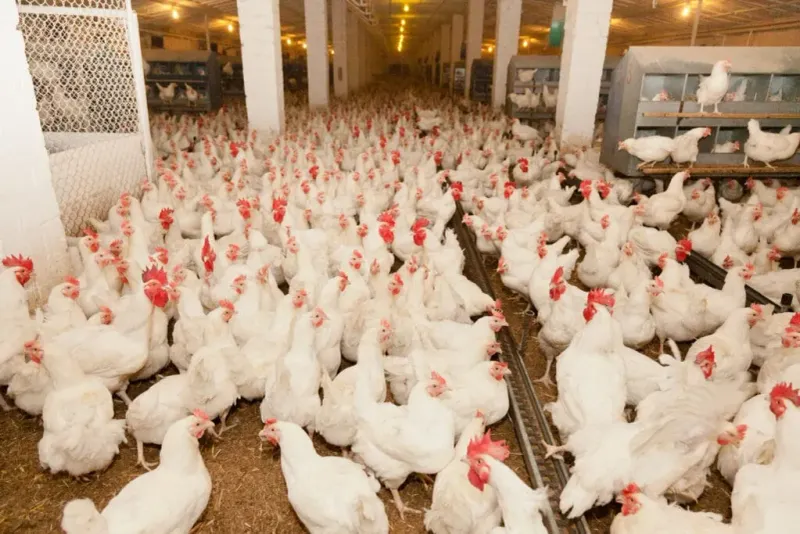
Leghorns are famous for their exceptional egg production, making them a top choice for egg farmers. Their lean bodies and active nature contribute to their efficiency, as they require less feed compared to other breeds.
These spirited birds are known for their inquisitive and independent personalities. While they might not be the cuddliest of chickens, their productivity is unmatched.
Originating from Italy, Leghorns have been a part of the farming world for centuries, continuing to be a reliable choice for those focusing on egg production.
Sussex
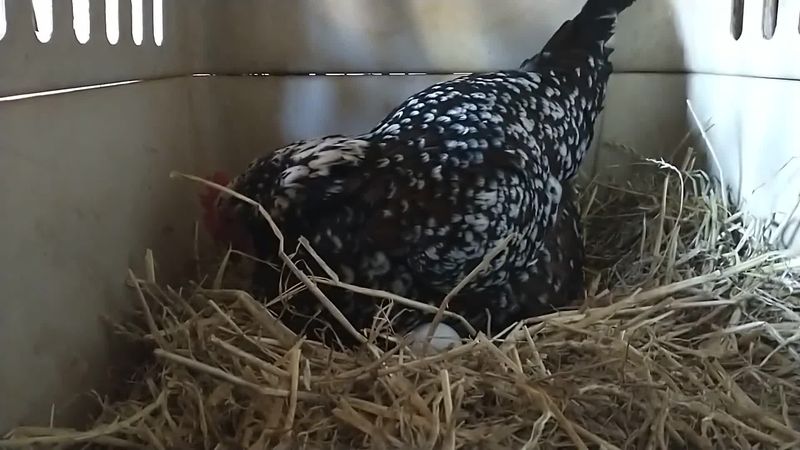
The Sussex chicken offers a delightful combination of egg-laying prowess and meat production. Known for their docile nature, these birds make excellent pets as well as productive farm animals.
With a history tracing back to Roman times in England, Sussex chickens bring a touch of heritage to any farm. They come in various color patterns, adding visual interest to your flock.
Their ability to thrive in free-range conditions makes them a versatile and valuable addition to your farming endeavors. Many gardeners appreciate their gentle foraging habits.
Plymouth Rock
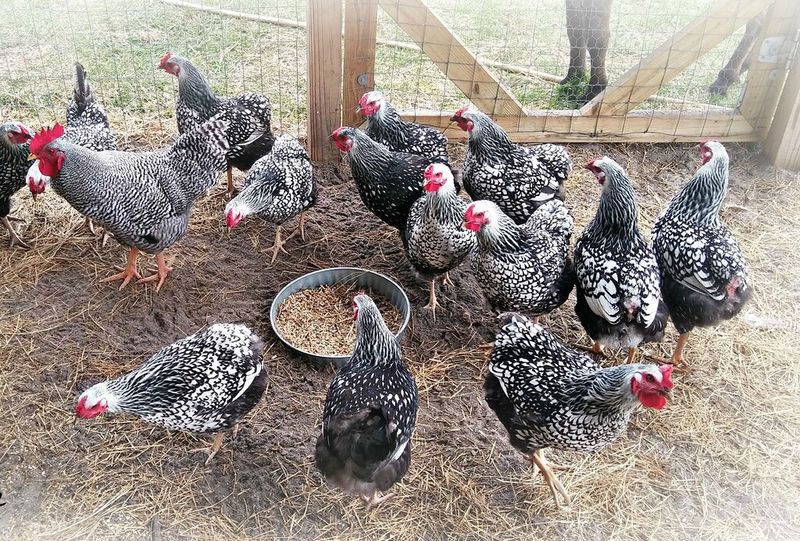
Plymouth Rocks are a popular dual-purpose breed, offering both eggs and meat. Their striking black and white barred plumage makes them an attractive presence in any flock.
These birds are known for their calm and friendly disposition, making them a favorite among families. They adapt well to various farming conditions, including confinement and free-range setups.
Developed in the United States in the 19th century, Plymouth Rocks have a rich history and continue to be a reliable choice for farmers looking for versatility and beauty.
Orpington
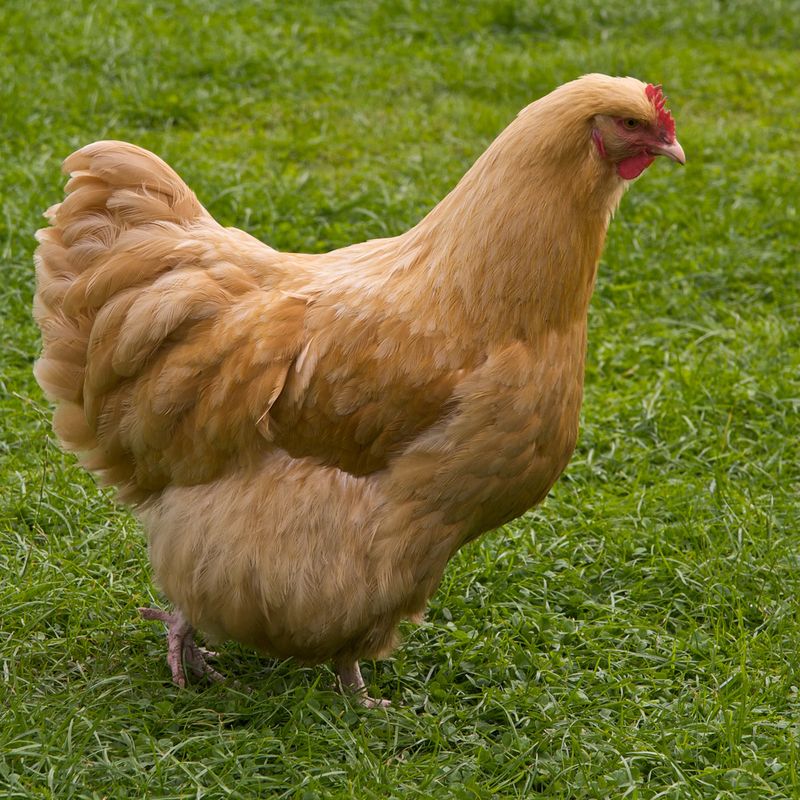
Orpingtons are cherished for their gentle temperaments and beautiful plumage. These large, friendly birds are excellent layers, particularly in cooler climates where they continue to produce eggs through the winter.
Their calm demeanor makes them ideal companions for children and beginner farmers. Originally bred in Orpington, England, these chickens were designed for both beauty and utility.
Their popularity has endured over the years, as they offer a charming and productive presence on any farm. Their soft, golden feathers add a touch of elegance to the flock.
Australorp
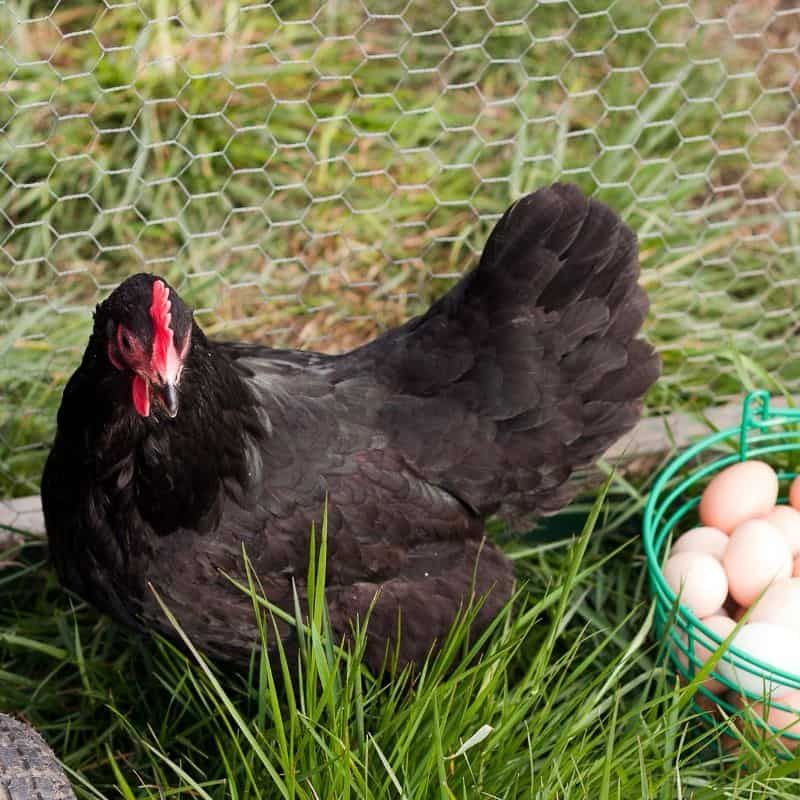
Australorps are renowned for their exceptional egg-laying capabilities, holding world records for egg production. Their glossy black feathers shine with a greenish sheen in the sunlight, making them a striking addition to any farm.
These birds are friendly and easy to manage, thriving in both free-range and confined environments. The Australorp’s origins in Australia reflect their ability to adapt to diverse climates.
Whether you’re interested in egg production or simply adding beauty to your flock, Australorps are a top choice for their productivity and striking appearance.
Silkie
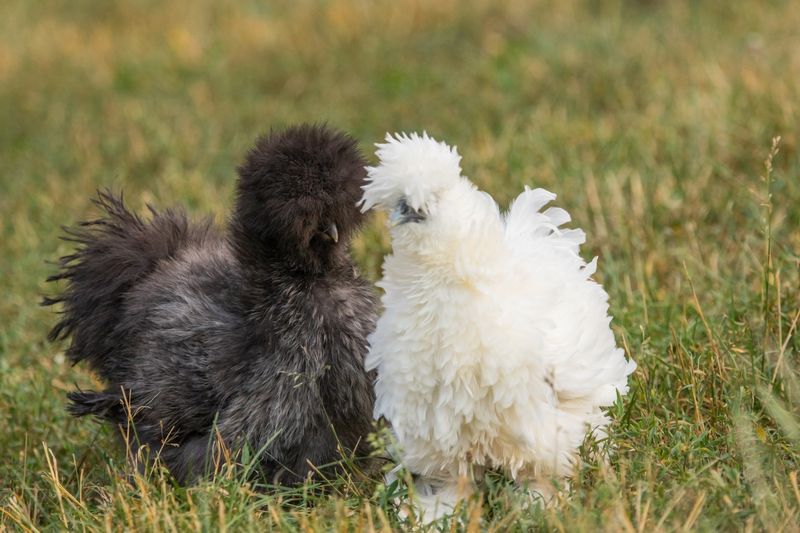
Silkies are a unique breed known for their incredibly soft feathers and friendly personalities. Often kept as ornamental pets, these birds are beloved for their docility and the companionship they offer.
Their feathers lack barbs, giving them a silky texture that sets them apart from other chickens. Silkies are also excellent mothers, often used to hatch eggs from other breeds.
With origins in Asia, Silkies have been cherished across continents for centuries. Their quirky appearance and gentle demeanor make them a delightful addition to any farm or backyard.
Wyandotte
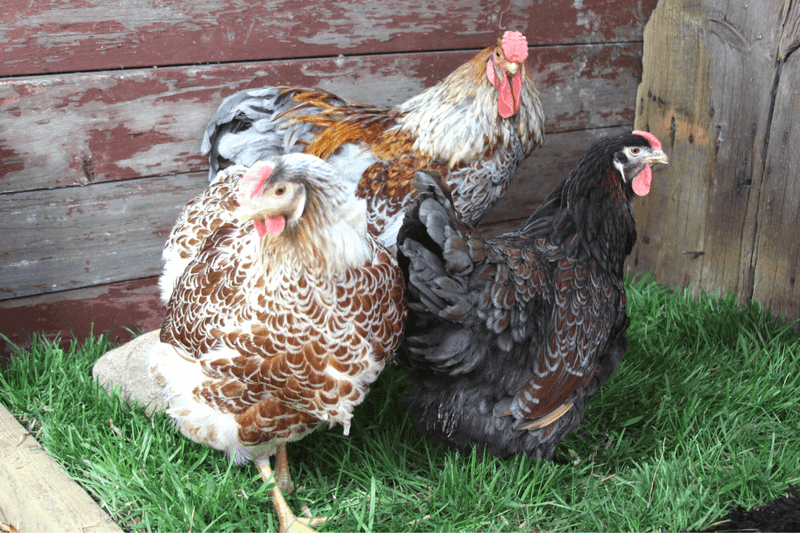
Wyandottes are celebrated for their striking plumage and balanced utility. Their silver-laced feathers create an eye-catching pattern, making them a favorite for both show and farm use.
These birds are known for their dependable egg production and good meat quality. Their calm and friendly nature makes them easy to handle for farmers and families alike.
Originating in the United States, Wyandottes are a symbol of American poultry breeding success. Their adaptability to different environments ensures they remain a popular choice among poultry keepers.
Ameraucana
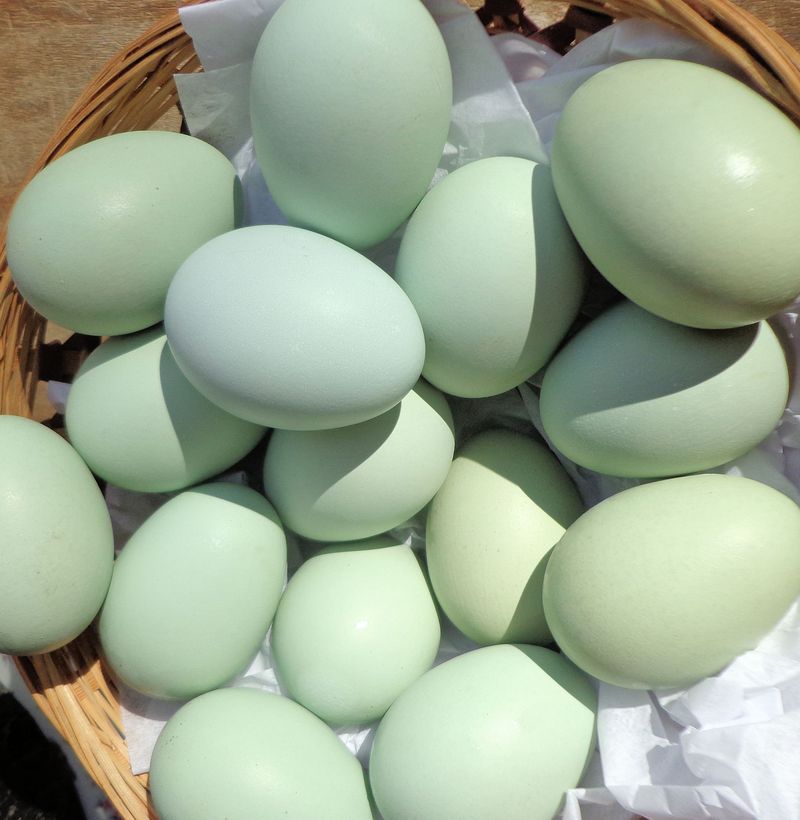
Ameraucanas are best known for their unique blue eggs, adding a splash of color to any egg basket. These chickens possess a distinct appearance, with beards and muffs that give them a charmingly quirky look.
Their friendly and curious nature makes them a joy to have on the farm. Originally developed in the United States, the breed’s ability to lay well in cold climates is a bonus.
Ameraucanas are not only productive but also bring diversity to your flock with their colorful eggs and engaging personalities. They’re a delightful addition for any egg enthusiast.
Guinea Fowl
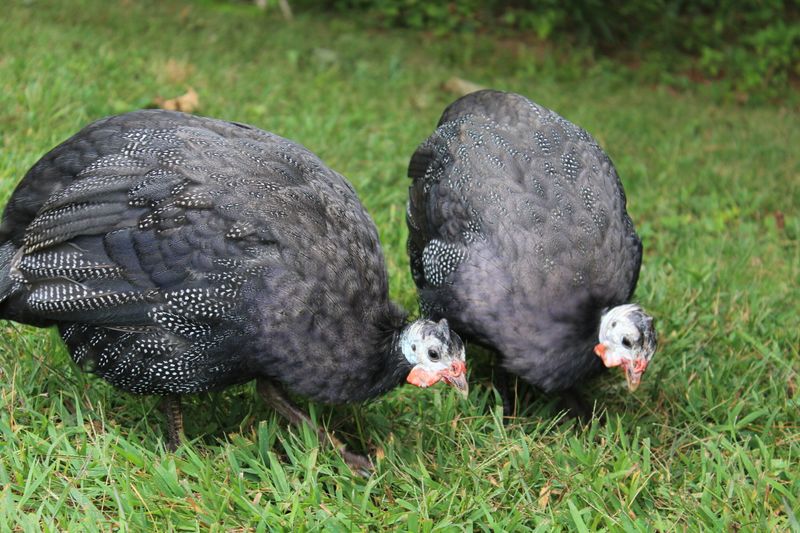
Guinea fowl are known for their excellent pest control abilities, particularly in reducing tick populations around the farm. Their distinctive calls and social nature make them an interesting addition to any farm setting.
Despite their benefits, these birds require careful management, as they can be noisy and have a tendency to roam.
With origins in Africa, guinea fowl are hardy birds that thrive in various environments. While they offer unique advantages, their care needs to be balanced with their tendency to wander and their vocal nature.
Peacock

Peacocks are admired for their breathtaking beauty and vibrant tail feathers. Often considered ornamental birds, they bring a sense of grandeur to any farm or garden.
While their visual appeal is undeniable, peacocks can be challenging to care for. They require ample space and can be territorial during breeding season.
Originating from India, peacocks have been associated with royalty and elegance throughout history. Though stunning, their upkeep can be demanding, and their loud calls may not be suitable for all farm settings.
Swan
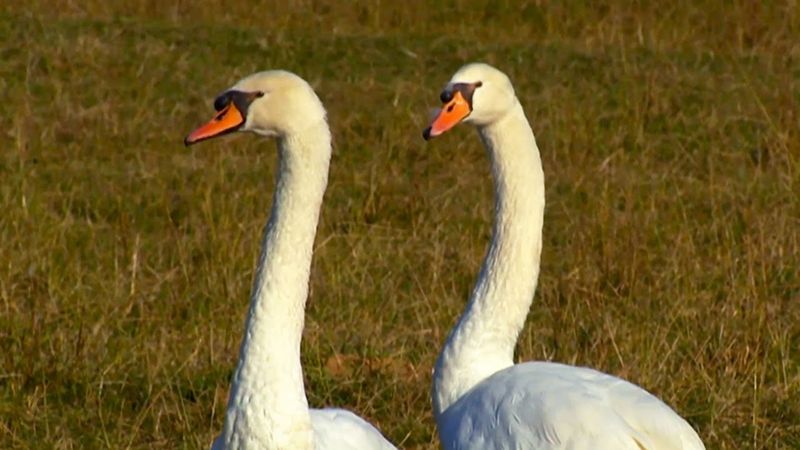
Swans are synonymous with grace and beauty, often gracing ornamental lakes and ponds on larger estates. Their majestic presence adds elegance to any water feature.
However, swans can be quite territorial and aggressive during breeding season, requiring careful management. They also need a suitable water body to thrive.
With their origins in the wild, swans are best suited for those who can provide the necessary space and environment. While they offer visual appeal, their care needs can be intensive, making them a challenging addition to the farm.
Ostrich
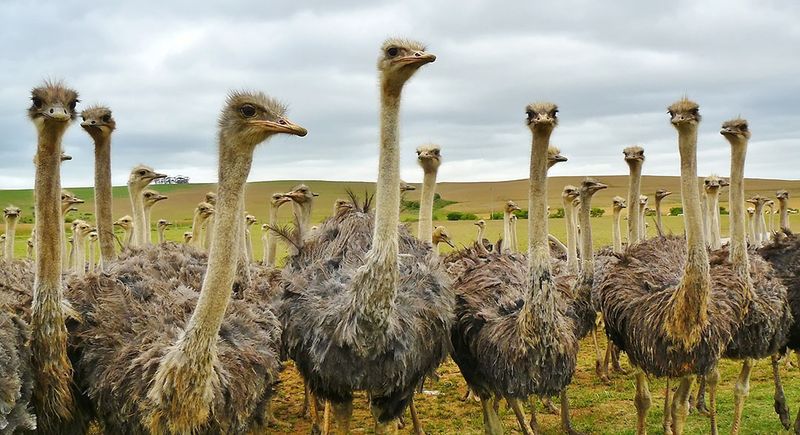
Ostriches are the world’s largest birds, offering unique farming opportunities beyond traditional poultry. Their meat and eggs are sought after for their lean quality and exotic appeal.
Despite their benefits, ostriches require specialized care and large enclosures to thrive. They can be unpredictable and require experienced handling.
Native to Africa, ostriches have been farmed worldwide for their feathers, leather, and meat. While they present intriguing possibilities, the challenges of raising such large birds may not suit every farmer’s setup.
Turkey

Turkeys have become a quintessential part of holiday traditions, and their meat is highly valued. They can be a practical choice for meat production on the farm.
Nevertheless, turkeys can be susceptible to diseases and require attentive care to maintain their health. Their social structures also need careful management.
Domestic turkeys are descendants of wild turkeys native to North America. While they offer substantial meat yield, their care requires diligence and understanding of their specific needs.
Duck
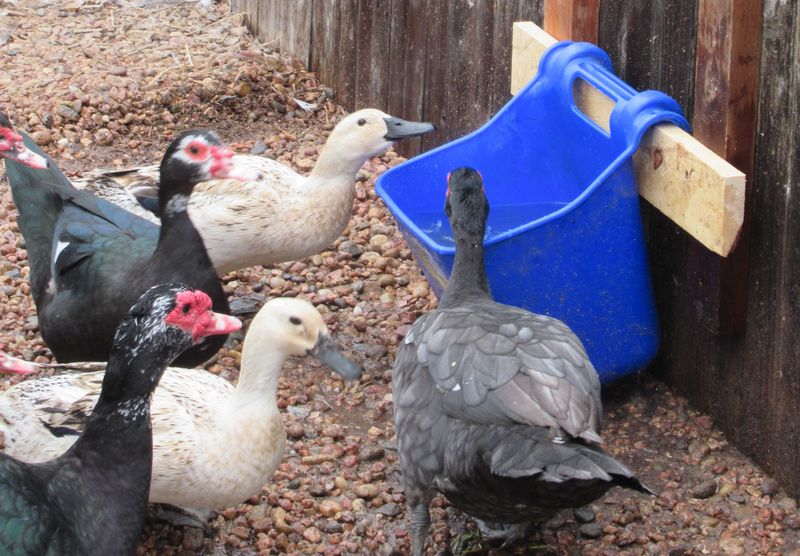
Ducks are adored for their versatility and charm. They provide not only eggs and meat but also can help control pests in gardens and fields.
However, ducks require access to water for optimal health and can be messy, necessitating regular cleaning of their living areas. Their social nature means they thrive best in groups.
Originating from various regions around the world, domestic ducks have been companions to humans for centuries. While they offer numerous benefits, potential challenges include their water needs and maintaining a clean environment.

